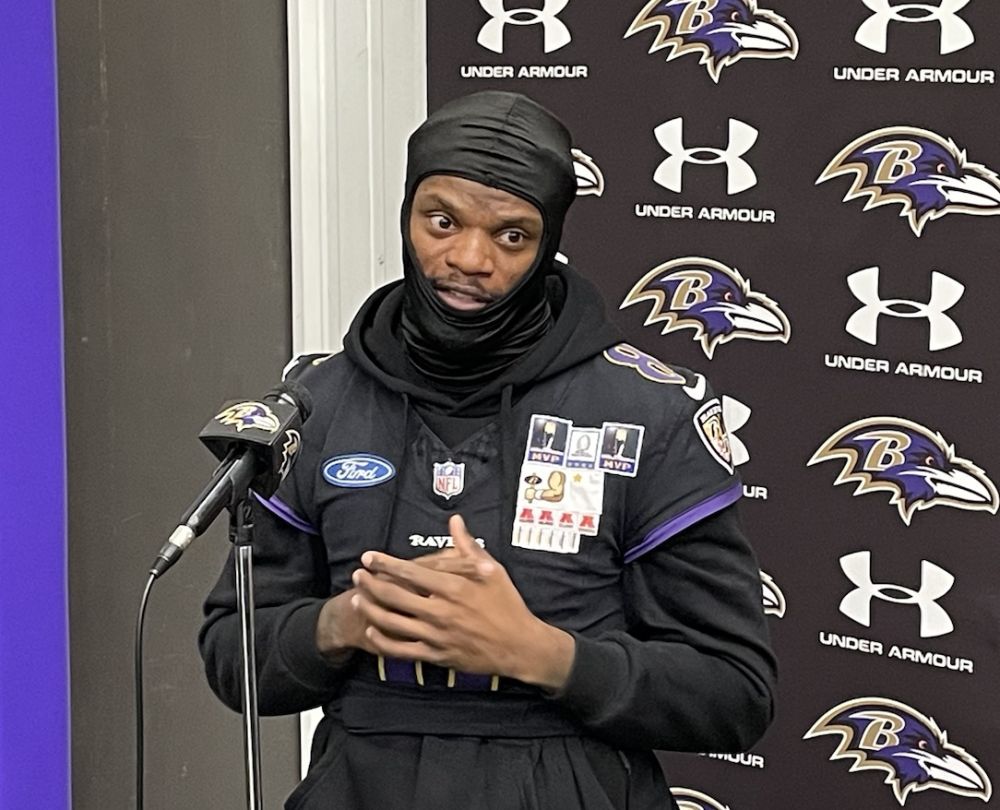BALTIMORE — With the trade deadline only a week away, the Orioles have a very difficult decision to make when it comes to the future of Jeremy Guthrie, who could be making his final start with the club at Camden Yards on Sunday afternoon.
Do you trade your most consistent pitcher — even with an ugly 4-13 record — and further destroy a starting rotation sporting a 7.88 earned run average over its last 23 games entering Saturday’s action? Or do you retain your lone veteran presence on a club still hoping to develop the likes of Zach Britton, Jake Arrieta, and Brian Matusz and forgo any potential return of younger players for the future?
The trade winds have whispered Guthrie’s name for a few seasons now, but the Orioles ultimately viewed their de facto ace as more valuable to them than any other team trying to pluck him at the deadline. Despite a 42-61 record in five seasons with the Orioles, Guthrie has a career 4.10 ERA over that span, including three seasons in which he finished with an ERA below 3.85.
By no means should the Orioles simply send Guthrie to the first taker, but perhaps a look at the unfortunate case of Luke Scott should make president of baseball operations Andy MacPhail think long and hard about trading the 32-year-old pitcher. Scott was once again placed on the disabled list Saturday with a torn labrum in his right shoulder and will miss the rest of the season as he opts to either undergo surgery or go through a lengthy rehabilitation program.
A year ago at this time, Scott was in the midst of becoming the team’s most valuable player when he hit 27 home runs and posted a .902 OPS. Instead of trading Scott at last year’s deadline or moving him in the offseason, the Orioles abstained and now face the decision of what to do with the 33-year-old power hitter in his final year of arbitration and making $6.4 million this season. While a team-friendly offer is within reason this winter, it would be unwise to offer arbitration and to pay Scott upwards of $7 million with his health being such an uncertainty at age 34 in 2012.
Instead of moving Scott — who has a .826 OPS in his four seasons in Baltimore — when they had the chance to get younger value in return, the Orioles now face the prospect of allowing a declining Scott to walk for nothing.
“My heart’s desire is I’m going to be here when the organization makes that turn to get back to where we need to be,” Scott said. “But that’s out of my hands. All I can do is just get ready for this challenge that’s coming up to get myself ready for next spring training and to bring to the table what I bring to the table when I’m healthy. The rest is the Orioles’ decision. The good Lord has control of my future, and my hope is it will be here.”
The comments are unsurprising and echo the thoughts of Guthrie whenever the pitcher’s been asked about his desire to remain with the Orioles amid trade rumors the last few seasons. The Stanford product has done everything asked of him and has always said the right things during his time in Baltimore, with very little in return in the way of run support and accolades.
However, Guthrie will also enter his final year of arbitration this winter after making $5.75 million in 2011. He will be 33 years old next season and will likely seek a three-year contract and relatively substantial dollars. With the Orioles mired in last place with a 40-57 record, does Guthrie really fit the profile of a pitcher who will still be productive by the time the club might — and that’s a major hypothetical at this point — be ready to compete?
It’s not smart to offer multi-year deals to 33-year-old pitchers when you’re not close to contending, which is where the Orioles will likely find themselves a year from now.
As tempting as it is to simply maintain the status quo — you know what you’re getting from Guthrie every fifth day — perhaps it’s time to grant him his release from baseball purgatory. There’s little doubt the right-hander could be of great help to a contender looking for an effective third or fourth starter. In return, the Orioles will hopefully fetch a player or two close to being ready to contribute at the major league level.
While no real fault of his own, Guthrie hasn’t made the Orioles a winner, and it isn’t likely to change anytime soon as he approaches his mid-30s. Failing to get good returns for productive older players has happened far too often over the last 14 years, and it’s really no excuse if you’re trying to eventually contend and not just concern yourself with being a .500 team the following season.
Are the Orioles worse without Guthrie in the immediate future? Yes.
Will Guthrie put them over the top if the Orioles find themselves on the cusp of being a contender? Doubtful.
As brutal as it might be to the current starting rotation should Guthrie be dealt, it’s far more painful watching Scott limp away from his 2011 season with the Orioles knowing the possibility of getting something for him is all but gone.
If the right opportunity arises — a fair trade for the pitcher’s services — MacPhail and the Orioles need to make a deal.
If they decide not to, I hope we’re not thinking back to this conversation again next summer.
And wondering what might have been had they decided to pull the trigger.























